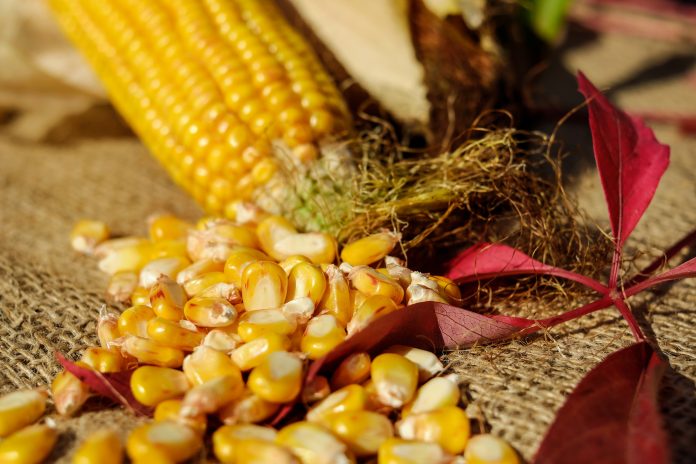Do you ever wonder what it would be like to face an emergency without a stockpile of food and supplies? As a prepper, being prepared for any situation is key. One item that you should certainly include in your pantry is cornmeal!
Cornmeal is an incredibly versatile food product that can be used in many different ways. It can be cooked into a porridge for breakfast, mixed with water, fried for traditional cornbread, or added to soups, stews, and casseroles as a thickener. But how do you store it long term? In this article, we’ll discuss how to store cornmeal long-term the right way and ensure that you always have some on hand in an emergency.
Key Takeaways
- Ways to preserve your cornmeal for the long-term
- Maximizing the shelf life of your cornmeal stash.
- Identifying when cornmeal has gone bad
- Eliminating bug eggs from your cornmeal supply
Summary
- Using correct storage methods, cornmeal can last up to a year or longer.
- To keep it fresh for the long term, it is best to choose bolted cornmeal rather than self-rising or unbolted.
- Store cornmeal in a cool, dark place to ensure maximum freshness.
- Before you use a new container, make sure it hasn’t already gone bad.
- A quick way to kill any eggs present in the cornmeal is to freeze it.
- Even though cornmeal is powder, it does expire eventually.
Ways to Preserve Cornmeal For the Long Term
There are lots of different types of methods you can use to store cornmeal, but not all of them are going to be effective. So let’s go over some of the best ways to store cornmeal.
Dry, cool, and dark place
The simplest way to store cornmeal long-term is to follow the three commandments of food storage: keep it dry, cool, and dark. A root cellar or basement is ideal for this purpose as they are naturally cool, dark, and dry environments. Just make sure to hire a basement waterproofing company to do the basement waterproofing to avoid water from seeping in and keep your cornmeal dry.
If you don’t have either of those things available, make sure that whatever cupboard or closet you use is away from any heat-generating appliances like water heaters or furnaces.
If you don’t have a dark closet, consider adding some blackout curtains to further reduce the temperature and keep out light. Additionally, airtight containers or resealable bags can help keep moisture out and make it last even longer!
Mylar bags with oxygen absorbers
If you’re going for the ultimate level of food storage, oxygen absorbers, and mylar bags are the way to go. Oxygen absorbers work by absorbing the oxygen in the air, creating an atmosphere that is not suitable for bacteria and other microorganisms to thrive.
When placed inside a mylar bag, they create an almost impenetrable barrier that keeps your food safe from getting spoiled! This combination will protect your cornmeal for up to a decade without going bad!
Mason jars
If you’re just working with a small amount of cornmeal, you might just want to bring mason jars into the mix! Just fill your jars with the cornmeal, seal them tightly, and store them in a dry, cool, and dark place.
This method of storage should last for about one year if done correctly. This is a great way to have access to small amounts of cornmeal without having to worry about opening up large containers.
For those looking for longer-term storage solutions, dry canning is an option. This method involves filling mason jars with cornmeal, sealing them tightly, and then processing the jars in a pressure canner to create an airtight seal. Doing this will keep the cornmeal fresh for up to five years!
Vacuum Seal
Vacuum sealing is another option that will keep your cornmeal safe and fresh for years. This process involves placing the cornmeal in mason jars and then vacuum sealing the lid onto them. Doing this will eliminate all air from the jar and create a tight seal.
This method of storage should keep your cornmeal fresh for three to five years, but it’s also super fast and easy to get done, so you could repeat it multiple times as well.
The key to success with any of these methods is to make sure that you are sealing the containers properly and, as discussed before, storing them in a cool, dry, and dark environment to give them the best chance at surviving for years!
Freezer
Finally, we have the classic storage method that works for just about anything: freezing! Freezing cornmeal is a great way to store it for longer periods of time and preserve its taste and texture. Just make sure to label the bags with the date, so you know how long they’ve been in the freezer.
Frozen cornmeal can last for up to 5-10 years when stored correctly, so it’s a great solution for those who have limited pantry or cupboard space. Be aware, however, that thawing and refreezing cornmeal can result in a decrease in quality, so try to only freeze it once!
To get around this, though, you can bring in the mylar bags back in to the mix and store lots of small batches so you can easily thaw them as you need them and keep a steady supply of cornmeal on hand without it affecting the rest of it!
How long can properly stored cornmeal last?
Cornmeal can last a long time when stored in the right conditions.
Mylar bags, for instance, are air-tight and can extend the shelf life of cornmeal up to 10 years.
If you put your cornmeal in a mason jar or vacuum-sealed bag, it will last up to one year.
Finally, storing your cornmeal in your freezer can extend its shelf life for several years!
No matter which storage method you choose, it is important to make sure that you are storing your cornmeal in a cool, dry location.
Doing so will help ensure that your supply of cornmeal has the longest possible shelf life – and keeps its flavor intact for as long as possible!
Why Cornmeal is a good food to stock up for emergencies,
Cornmeal can be a lifesaver in emergency situations. Not only is it nutritious and easy to store, but it has a long shelf life that makes it ideal for stocking up during times of crisis.
In addition to its nutritional value, cornmeal is also incredibly easy to prepare. It can be cooked over an open flame or boiled in water to make porridge, or used as a binder for breads and pancakes.
It can also be added to soups or stews for extra flavor and texture.
Finally, cornmeal is incredibly affordable in comparison to other long-term storage foods.
This makes it an ideal choice for those who are looking to stock up on food for emergency situations without breaking the bank.
So it works for just about every prepper, regardless of their budget!
Popcorn vs Cornmeal for Long-Term Food Storage: Which is Better?
When it comes to deciding which is better for long-term food storage, the key is to consider both nutrition and convenience.
Popcorn has a longer shelf life than cornmeal but needs to be processed in order to avoid diseases like botulism, which is not necessary with cornmeal.
Cornmeal is easier to store and use as it comes pre-ground and is enriched with vitamins.
Ultimately, it depends on your needs – if you’re looking for food that will last a long time and be versatile, popcorn is the better choice, while cornmeal is better if you’re looking for something easy to store and use. Get your popcorn from a reputable popcorn shop like Vics Corn Popper. So this one will vary from person to person and their needs!
What kind of cornmeal you should avoid for long-term storage?
With oatmeal, it’s important to remember that the kind you choose can make a difference when it comes to storage. Oats are usually sold pre-rolled, or steel cut and both have different properties that make them better for different uses.
For long-term storage, you want to avoid pre-rolled oats since they contain more moisture than steel-cut oats, which can make them go bad more quickly. Pre-rolled oats also contain oils that can turn rancid over time, so they are not ideal for longer storage.
Steel-cut oats, however, have a much lower moisture content and do not contain the same oils as pre-rolled oats. This makes them a much better choice for long-term storage, as they can last for years in a cool, dry place.
You should also avoid instant oatmeal for long-term storage since it has been pre-cooked and contains preservatives that will break down over time. The same is true of flavored and sweetened oatmeal; the ingredients used to create these flavors can go bad if not stored properly.
When it comes to storing oatmeal long-term, stick with steel-cut oats for the best results. Store them in an airtight container in a cool, dry place, and they should stay fresh for years.
Can you use cornmeal after the expiration date?
There’s a common misconception that powdered or dried food never really expires. But that’s not the case. While cornmeal has a relatively long shelf life, it will eventually go bad. The best way to tell if your cornmeal has gone bad is to look for signs of mold or other spoilage.
Mold inspection should be done by professionals. If any mold or other contaminants are present, discard the cornmeal immediately. Taking these steps, along with considering a professional Mold Removal Toms River, can help ensure that your cornmeal is free from bugs’ eggs and safe to eat.
If the cornmeal looks and smells fine, but is past the expiration date, it is still safe to use. However, its texture and flavor may not be as good as it once was. It’s important to exercise caution and check for any signs of spoilage before consuming expired cornmeal.
The great thing is that using the storage tips we’ve outlined in the article above will help you keep your cornmeal for longer. That way, you don’t have to worry about wasting your money or compromising your health. So you can use and enjoy your cornmeal for up to two years after its expiration date!
How to kill bugs’ eggs in your cornmeal
Nothing can ruin a batch of cornmeal like discovering bugs’ eggs. To prevent this, it is important to kill the eggs before they can hatch and contaminate your food.
An effective way to do this is by placing the cornmeal in an airtight container and storing it in the freezer for at least 48 hours.
This will ensure that any eggs present in the meal will be killed. Once the cornmeal has been frozen, it should be transferred to a cool, dry place and checked periodically for signs of spoilage or contamination.
If any mold or other contaminants are present, discard the cornmeal immediately. Taking these steps can help ensure that your cornmeal is free from bugs’ eggs and safe to eat. For professional mold removal services, you can check out https://aqualockit.com/.
Conclusion
Overall, cornmeal is an excellent staple for any prepper’s pantry. With proper storage, it can last for years without losing its flavor or texture.
When using cornmeal in recipes, check for signs of spoilage and discard it if necessary.
By knowing the best way to store cornmeal long term, you can use this versatile ingredient to create delicious dishes and snacks. With its long shelf life, cornmeal is a great way to ensure you always have a tasty ingredient on hand for any occasion or emergency!














